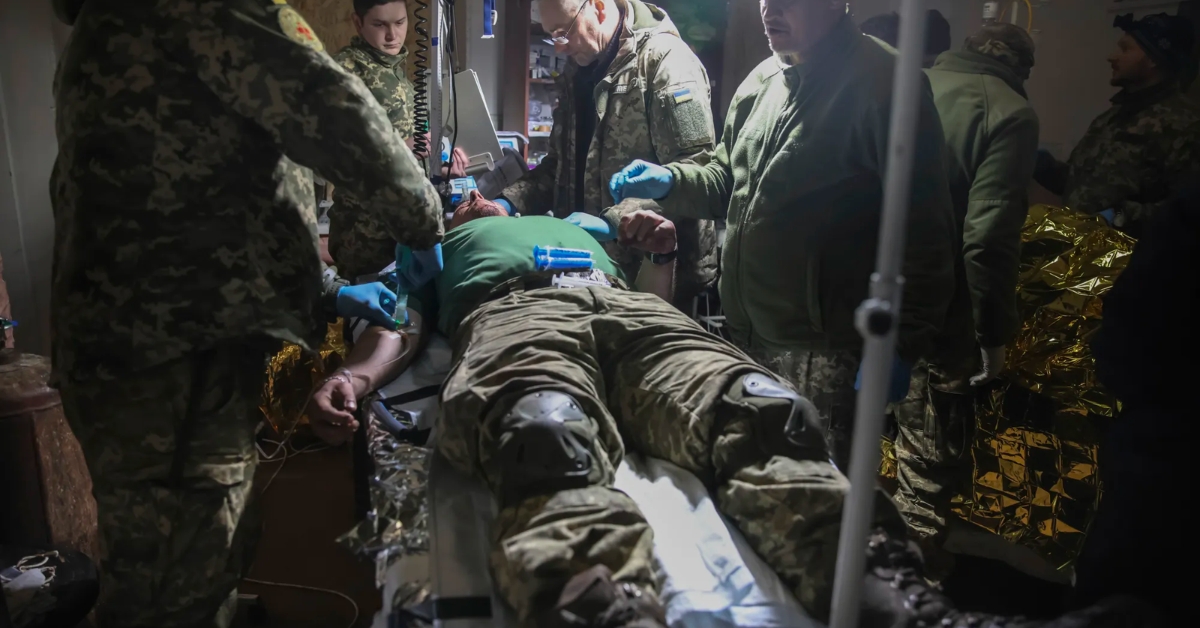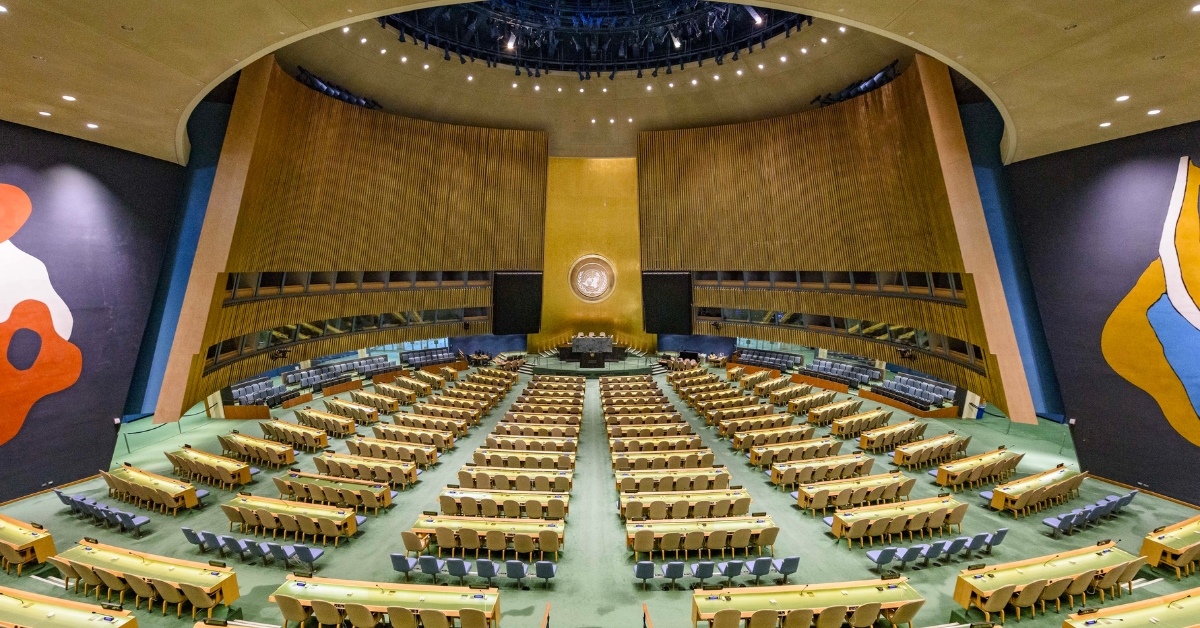The conflict in Ukraine has witnessed widespread war crimes and crimes against humanity, which demand accountability and justice. Understanding the gravity of these international crimes is crucial for prosecuting perpetrators and bringing high-ranking officials to justice.
Contents
This article explores the atrocities committed in Ukraine, the ongoing investigations, the importance of evidence gathering, and the potential prosecution of senior Russian officials.
Defining War Crimes and Crimes Against Humanity
War crimes and crimes against humanity are heinous acts that shock the conscience of humanity. War crimes encompass violence, attacks on civilians and infrastructure with no military objective, and indiscriminate weapons like cluster munitions.
Crimes against humanity are part of customary international law and involve grave abuses against civilians. Both these crimes are codified in international treaties.
Atrocities in Ukraine: War Crimes and Crimes Against Humanity
The atrocities committed in Ukraine include summary executions, torture, and abuse of civilians by the Russian military. Strikes on civilian areas, cultural properties, hospitals, and cluster munitions, have also been documented.
As of June 30, 2023, the Office of the United Nations High Commissioner for Human Rights (OHCHR) has confirmed 9,177 civilian deaths and 15,993 reported injuries during Russia’s invasion of Ukraine. It is worth noting that OHCHR has expressed concerns that the actual figures might be even higher than reported.

The full extent of these crimes is still being investigated.
Evidence Gathering for Prosecution
Admissible evidence includes forensic, audiovisual, and oral testimony. Physical evidence such as bodies and mass graves can establish the occurrence of atrocity crimes. Social media images can be verified using digital tools. Witness testimony from affected individuals can provide vital firsthand accounts.
Prosecuting Senior Russian Officials
Apart from individual prosecutions, it is possible to hold senior officials accountable for war crimes. To do so, evidence must link their actions to crimes committed on the ground. This includes assessing effective control, relevant orders, or knowledge of crimes within their ranks.
Reaching Accountability
Accountability for war crimes may take years and requires sustained political will and financial support. Increasing financial backing for the ICC is crucial for effective justice in Ukraine and all active investigations globally.
The United States Role in Seeking Accountability
Despite not being a party to the International Criminal Court (ICC), the United States can play a significant role in seeking accountability for war crimes committed in Ukraine. President Biden’s assertion that Russian President Putin is a war criminal adds weight to the US involvement.
Washington can orchestrate the collection and delivery of crucial information from various sources, such as refugees, satellite imagery, and declassified electronic intercepts.
Additionally, some leading senators from the Republican party have introduced a resolution supporting the ICC’s investigative efforts, showcasing a growing commitment to pursuing justice.
The US military can contribute by analyzing the “order of battle” of Russian troops, providing valuable information to aid investigators and prosecutors. Furthermore, Washington can support Ukraine in building cases against Russian soldiers and officers implicated in war crimes.
A Proactive Initiative at the UN General Assembly
The Biden administration can take the lead in spearheading an initiative at the UN General Assembly, urging the United Nations to enter into a treaty with the Ukrainian government to establish a special tribunal. This specialized body would have the authority to prosecute crimes of aggression committed by Russian leaders.

Given that the ICC lacks jurisdictional authority for such cases, this approach follows the successful models of the Special Court for Sierra Leone and the Extraordinary Chambers in the Courts of Cambodia, established two decades ago.
Russia’s Track Record on Investigating Abuses
Historically, the Soviet Union played a major role in investigating and prosecuting Nazi war crimes, including those that occurred during the Nazi occupation of Ukrainian cities like Kharkiv and Kyiv.
Between 1943 and 1952, the Soviets prosecuted an estimated eighty-two thousand people as Nazi criminals or collaborators. They also played a pivotal role in creating the Nuremberg Tribunal to prosecute crimes of aggression.
However, in recent decades, Russia’s domestic enforcement of the laws and customs of war has been lacking concerning its foreign military ventures.
As a result, expecting Moscow to cooperate with the ICC’s investigation of atrocity crimes or any special tribunal established to prosecute aggression appears implausible.
Compelling Surrender through Sanctions
Economic sanctions will primarily exert pressure on Russia, compelling the withdrawal of its forces and restoring Ukraine’s sovereignty and territorial integrity.
The potential inclusion of conditions in the sanctions demanding the surrender of indicted fugitives could serve as a powerful incentive for their cooperation.
Similar tactics have proven effective, such as surrendering indicted leaders like Slobodan Milosevic to the tribunal for the former Yugoslavia in The Hague.
Challenges with Reparations:
The extensive destruction of property and financial losses in Ukraine will underscore Russia’s responsibility to pay for reconstruction and compensate the affected population eventually.
Reparations are likely to be a focal point of negotiations to resolve the conflict and serve as an international condition for resuming normal relations with Russia. Western countries are expected to vehemently challenge any notion that they bear the burden of rehabilitating Ukraine.
While the post-World War II Marshall Plan helped rebuild a devastated Europe, Russia should not anticipate similar external assistance this time, as it bears direct responsibility as the aggressor nation and retains a viable economy and society despite international sanctions.
Importance of Justice in Ukraine for Global Accountability
Prosecuting war crimes in Ukraine is crucial in upholding international justice and deterring future atrocities. Successful prosecutions may discourage powerful actors from disregarding international rules and promote rededication to equitable international justice for all affected by atrocity crimes.
Conclusion
The invasion of Ukraine by Russia has resulted in numerous violations of international law, including war crimes, crimes against humanity, and potential genocide. The role of criminal law in holding Russia accountable for war crimes in Ukraine is tremendous.
The international community is actively pursuing investigations to hold those responsible accountable and ensure reparations for the destruction caused. The path to justice may be complex, but the commitment to upholding international law remains resolute.
